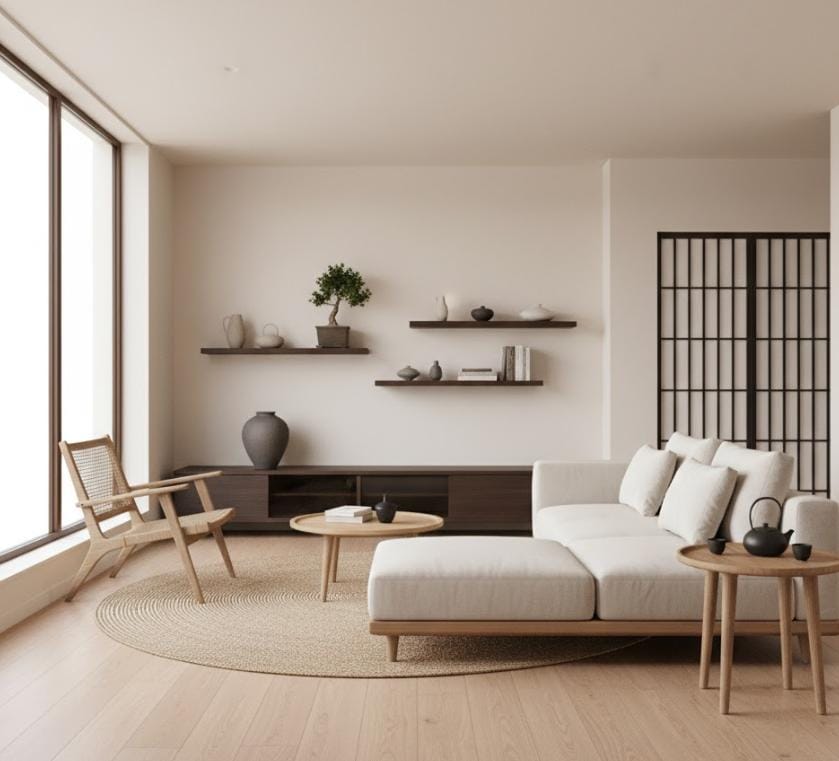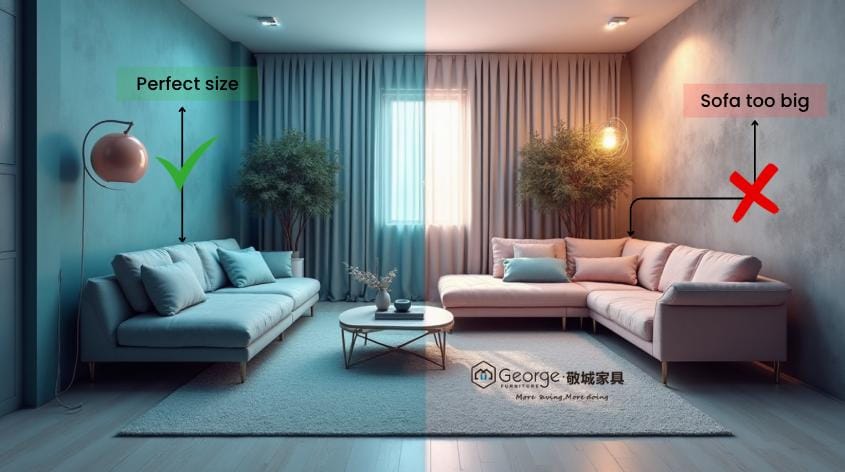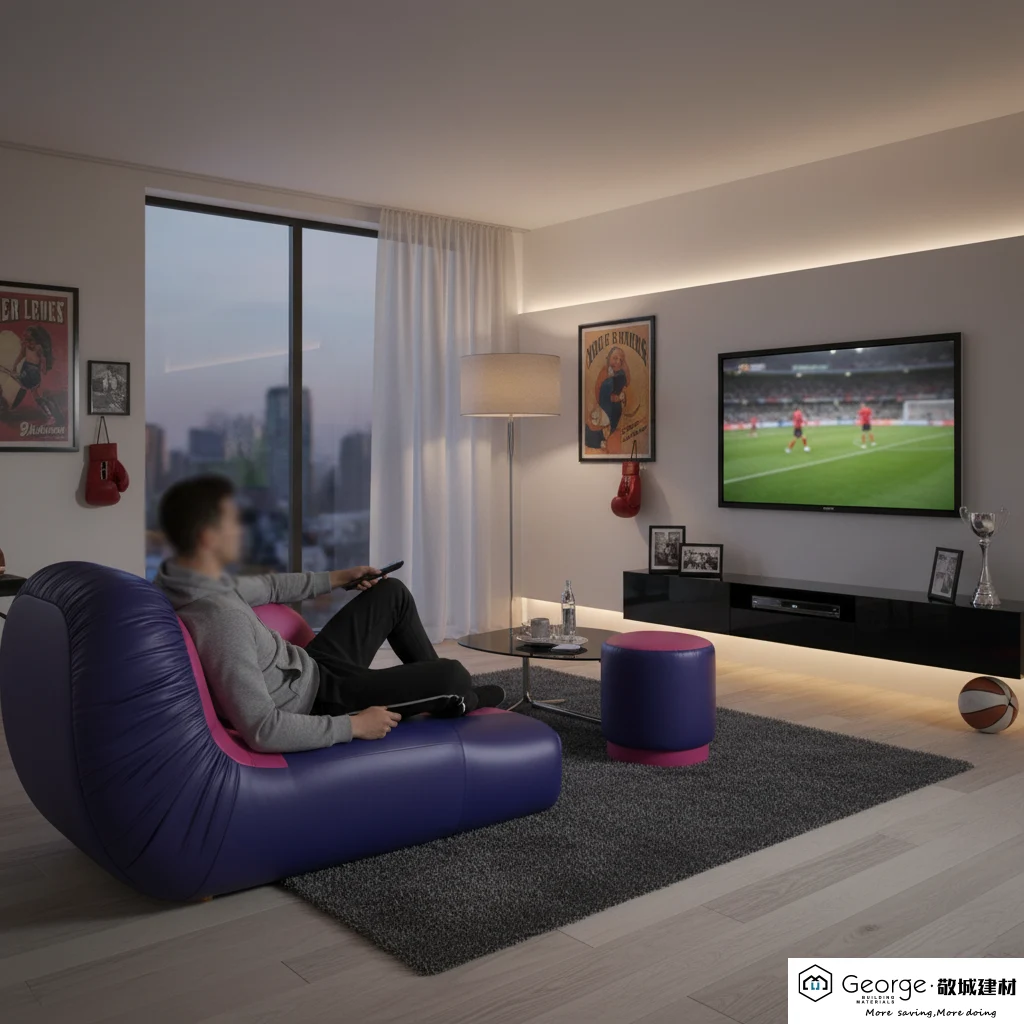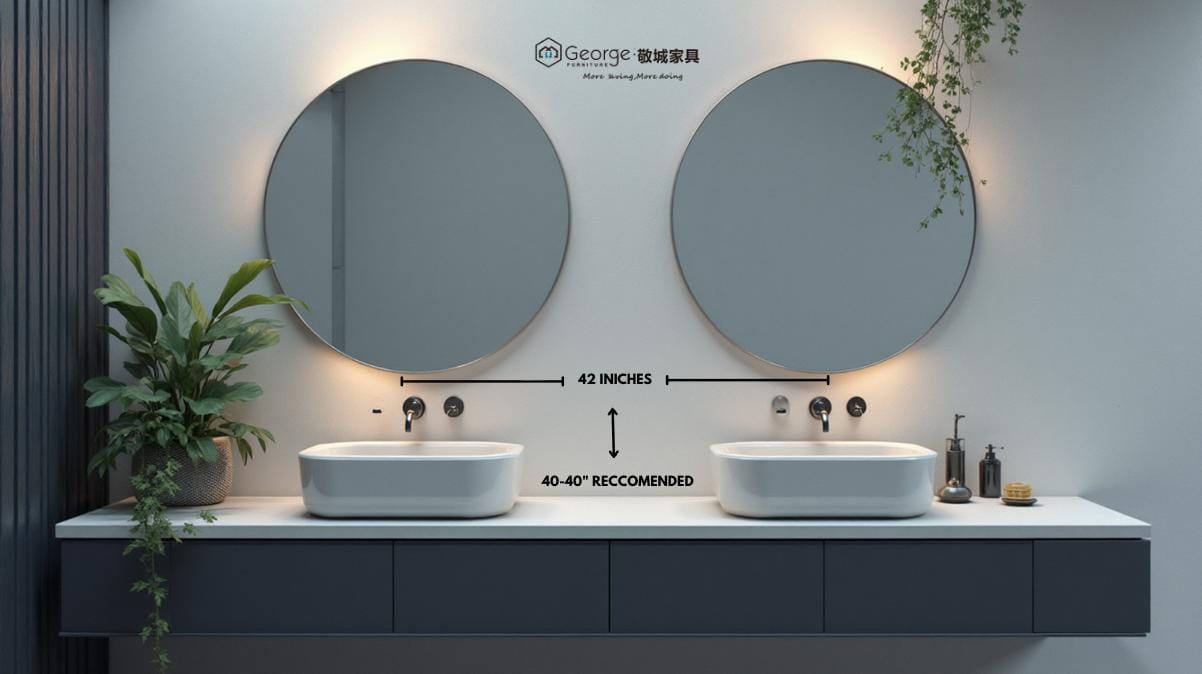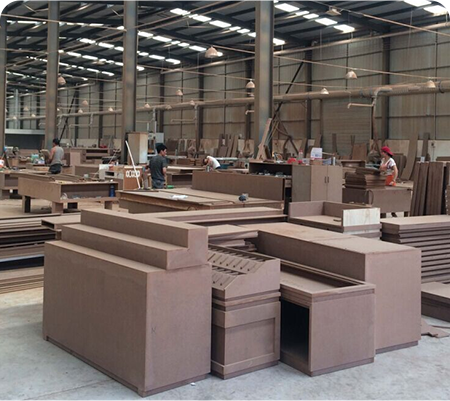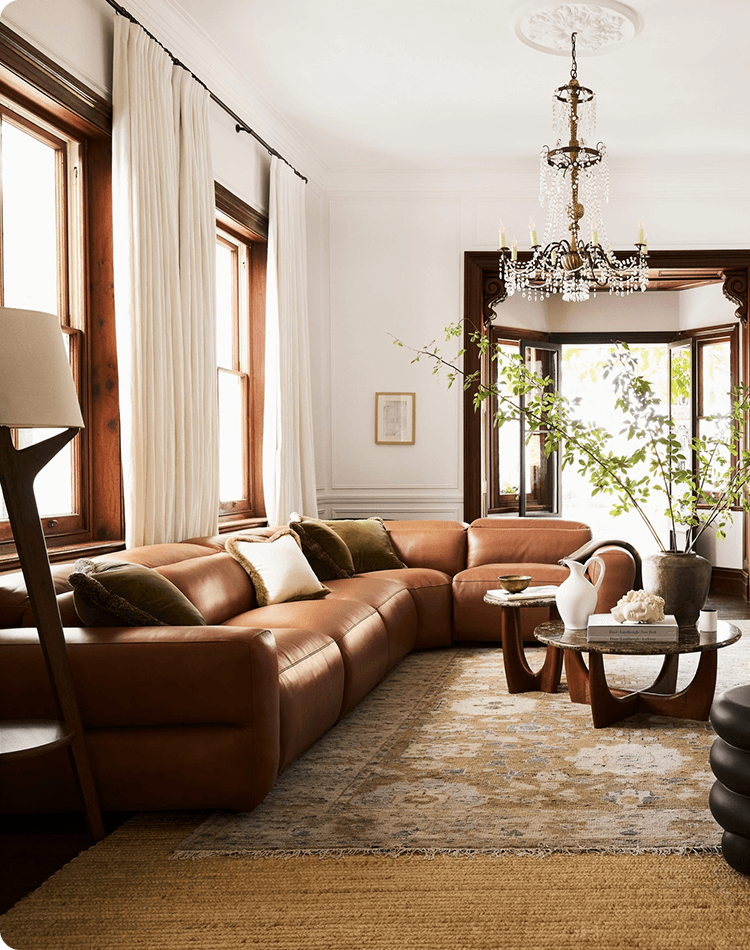Choosing the ideal flooring for your home or workplace represents a decision of great importance, intertwining aesthetic and functional aspects. Among the most popular solutions are laminate flooring and linoleum, two versatile and economically accessible alternatives.
But which of the two materials best suits your specific needs? In this article, we will analyze in depth the characteristics, advantages, and potential critical issues of both options, considering key factors such as durability over time, practicality of maintenance, and environmental impact.
Through a clear and structured comparative analysis, we will guide you in evaluating the different solutions, helping you identify the one most consistent with your priorities, without neglecting either the practical or the aesthetic aspect.
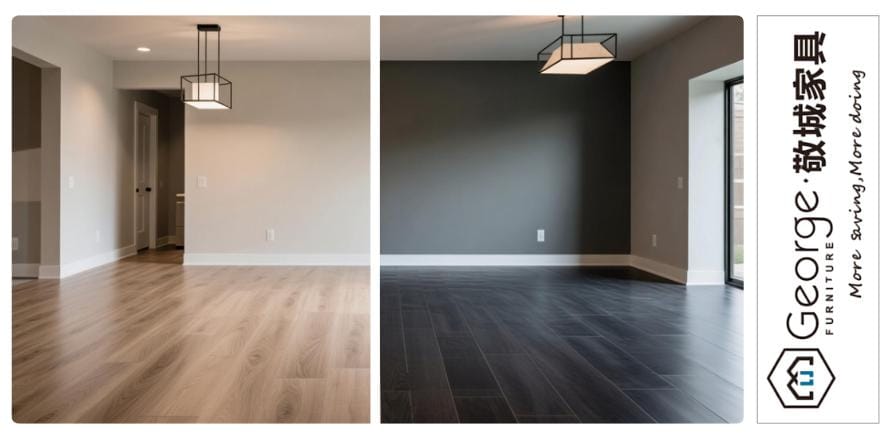
Table of Contents
Part 1. Laminate vs Linoleum: Material characteristics
Composition and structure
Have you ever wondered what makes laminate so durable? This material is composed of layers of pressed wood fibers, covered by a decorative surface that mimics wood, stone, or other materials. Its robustness comes from a superior protective layer that makes it resistant to scratches and wear. On the other hand, linoleum is a natural product, made with linseed oil, resins, wood flour, and pigments. Its composition makes it ecological, but how does this affect its resistance compared to laminate? The answer depends on the intended use and environmental conditions.
Aesthetics and versatility
What visual aspect do you desire for your environment? A laminate floor offers a wide range of designs, faithfully replicating the look of wood or ceramic at a lower cost. Its aesthetic versatility makes it ideal for those seeking a modern look without spending a fortune. Linoleum flooring, on the other hand, offers uniform colors or marbled patterns, with a more sober yet elegant aesthetic.
Think: do you prefer flooring that imitates natural materials or one with a minimalist appeal? Both can adapt to different styles, but laminate tends to win in variety of textures.
| Characteristic | Laminate | Linoleum |
| Composition | Wood fibers, decorative layer, resin | Linseed oil, resins, wood flour |
| Appearance | Imitates wood, stone, ceramic | Uniform colors, marbled patterns |
| Thickness | 0.24–0.47 inches | 0.08–0.16 inches |
Part 2. Laminate vs Linoleum: Durability and maintenance
Resistance over time
How long do you plan to use your floor before replacing it? Laminate flooring is known for its durability, especially in high-traffic areas, thanks to its protective layer resistant to scratches and stains. However, it is not repairable: severe damage requires replacing the entire plank. Linoleum flooring, although resistant, can suffer surface wear in heavily trafficked areas, but its surface can be renovated with specific treatments. Which of these aspects is more important to you: long-term durability without maintenance or the possibility of repairing the floor?
Ease of maintenance
Laminate flooring maintenance is simple: a broom or a damp cloth is enough to keep it clean. However, it is sensitive to humidity, so it is not ideal for bathrooms or kitchens. Linoleum flooring maintenance requires regular cleaning and, occasionally, polishing to preserve its shine. Its water resistance makes it more suitable for humid environments.
So? Is your space subject to frequent spills or do you prefer a floor that requires less daily attention?

Advantages and Disadvantages at a Glance
| Aspect | Laminate | Linoleum |
| Wear Resistance | High, but not repairable | Medium, repairable |
| Maintenance | Simple, sensitive to humidity | Regular, water-resistant |
What flooring is right for you?
Optimize your investment by choosing the right floor. Match your flooring to your space, lifestyle, and budget with confidence. Contact George’s Furniture today for a free, personalized quote and discover the perfect flooring for your home.
Part 3. Laminate vs Linoleum: Costs and installation
Initial and long-term cost
What is your budget for flooring? Laminate is generally more economical, with prices ranging between 1 and 5 dollars per square foot, excluding installation. Its affordability makes it attractive for large-scale projects. Linoleum, with costs between 2 and 7 dollars per square foot, is more expensive, but its longevity and repairability can offset the initial investment. Which aspect weighs more for you: immediate savings or long-term value?
Installation process
Have you ever considered how much installation can influence your choice? Laminate is often designed for DIY installation, thanks to interlocking systems that do not require glue. This reduces labor costs, but requires a perfectly level surface. Linoleum requires professional installation to ensure adhesion and precision, increasing overall costs. Are you willing to invest in professional installation for a flawless result, or do you prefer a simpler option?
Part 4. Laminate Flooring vs Linoleum Flooring: environment and health

Sustainability
How much do you care about the environmental impact of your flooring? Linoleum is an ecological, biodegradable material produced from renewable resources. Its production has a relatively low carbon footprint, making it ideal for those seeking sustainable solutions. Laminate, although some products use certified wood, contains synthetic resins that reduce its sustainability. Which priority guides your choice: a floor that respects the environment or one that is more economical but less ecological?
Indoor air quality
Are you concerned about the air quality in your home? Linoleum is free of volatile organic compounds (VOCs) and has natural antibacterial properties, making it ideal for allergy sufferers. Laminate, especially in economical products, can emit VOCs due to the resins used. However, certified high-quality laminates reduce this risk. What is your level of sensitivity to these factors?
Durability over the years
Another fundamental aspect is resistance over time. A linoleum floor, if properly maintained, can last up to 30-40 years and is naturally elastic and wear-resistant. Laminate flooring, on the other hand, has an average lifespan of 15-25 years, with variations related to quality and resistance class (AC).
| Criterion | Laminate | Linoleum |
| Sustainability | Medium, depends on certification | High, biodegradable |
| VOC Emissions | Possible, especially in economical products | Minimal, antibacterial |
Durability and Maintenance | 15-25 years, sensitive to humidity | 30-40 years, requires periodic waxing |
Environments of use
Where do you plan to install laminate flooring or linoleum? If you choose laminate, it represents a perfect solution for living rooms, bedrooms, and offices, thanks to its resistance and aesthetic versatility. However, its sensitivity to humidity makes it less suitable for bathrooms or laundries. Linoleum flooring, on the other hand, with its natural water resistance, is ideal for kitchens, bathrooms, and humid environments.
Customization and style
What kind of atmosphere do you want to create? Laminate offers endless possibilities for customization, with finishes ranging from oak to marble. Linoleum stands out for its sober elegance, with vibrant or neutral colors that adapt to modern or classic designs. Reflect: are you looking for flooring that integrates with existing furniture or one that becomes the aesthetic focal point of the room?
Comfort and acoustics
How important are underfoot comfort and noise reduction to you? Laminate flooring, while resistant, can feel stiffer underfoot and generate echo in large spaces if not combined with a good insulating underlay. Linoleum flooring, on the other hand, offers a softer and more elastic experience, reduces impact noise, and is often chosen in schools, offices, and homes where acoustic comfort is an added value. Do you prefer a practical and robust solution or a quieter and more welcoming environment?
Part 6. Where to buy Premium Laminate or Linoleum flooring.
After considering the differences between laminate and linoleum, the next step is finding a trusted supplier. When you’re searching for premium flooring, whether it’s high-quality laminate or durable linoleum, it’s essential to partner with a company that understands your needs.
George’s Furniture operates on a direct-from-factory model, offering competitive prices without the retailer markup. We’re not just a supplier; we provide complete solutions for both individuals and large-scale commercial clients. Our extensive range of furniture and flooring is available in multiple styles, including Modern, Mid-Century Modern, Industrial, and Farmhouse. We also offer a 2-5 year product warranty and ship to over 120 countries, with delivery typically within 30 days. No matter the size of your project, George’s Furniture is committed to providing a reliable, cost-effective, and high-quality solution that meets your specific needs.

What flooring is right for you?
Optimize your investment by choosing the right floor. Match your flooring to your space, lifestyle, and budget with confidence. Contact George’s Furniture today for a free, personalized quote and discover the perfect flooring for your home.
FAQ
Q1. Which is more durable between laminate and linoleum?
Laminate is more resistant to scratches and wear in high-traffic areas, but linoleum is repairable and resists humidity better.
Q2. Can I install laminate in the bathroom?
It is not advisable: laminate is sensitive to humidity. Linoleum, being water-resistant, is more suitable for humid environments like bathrooms.
Q3. Is linoleum truly ecological?
Yes, linoleum is biodegradable, produced with natural materials, and has a low environmental impact compared to laminate.
Q4. How much does laminate flooring cost?
Laminate flooring typically costs between $1.50 and $5.00 per sq ft, while professional installation adds around $2–$8 per sq ft, depending on quality and project complexity.
Q5. How much does linoleum flooring cost?
Linoleum flooring generally ranges from $2 to $7 per sq ft. Professional installation adds $2–$8 per sq ft, varying according to thickness and complexity.
Conclusions
Choosing between laminate and linoleum flooring depends on your priorities. If you are looking for an economical, versatile, and resistant option for dry environments, laminate is an excellent choice. However, if you prioritize sustainability, humidity resistance, and antibacterial properties, linoleum is superior, despite the higher initial cost. Whatever your preference, you can count on the professionalism of George’s Furniture, which offers customized solutions and wholesale supplies capable of satisfying every type of project.

